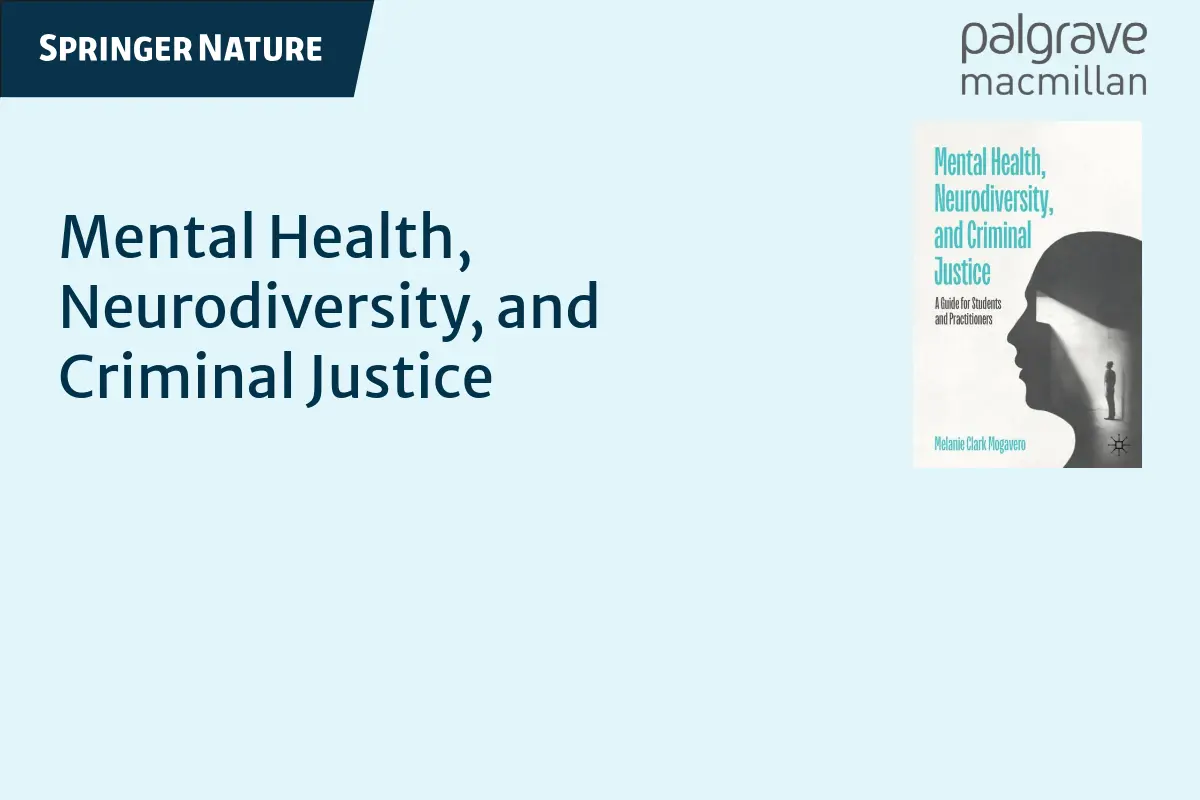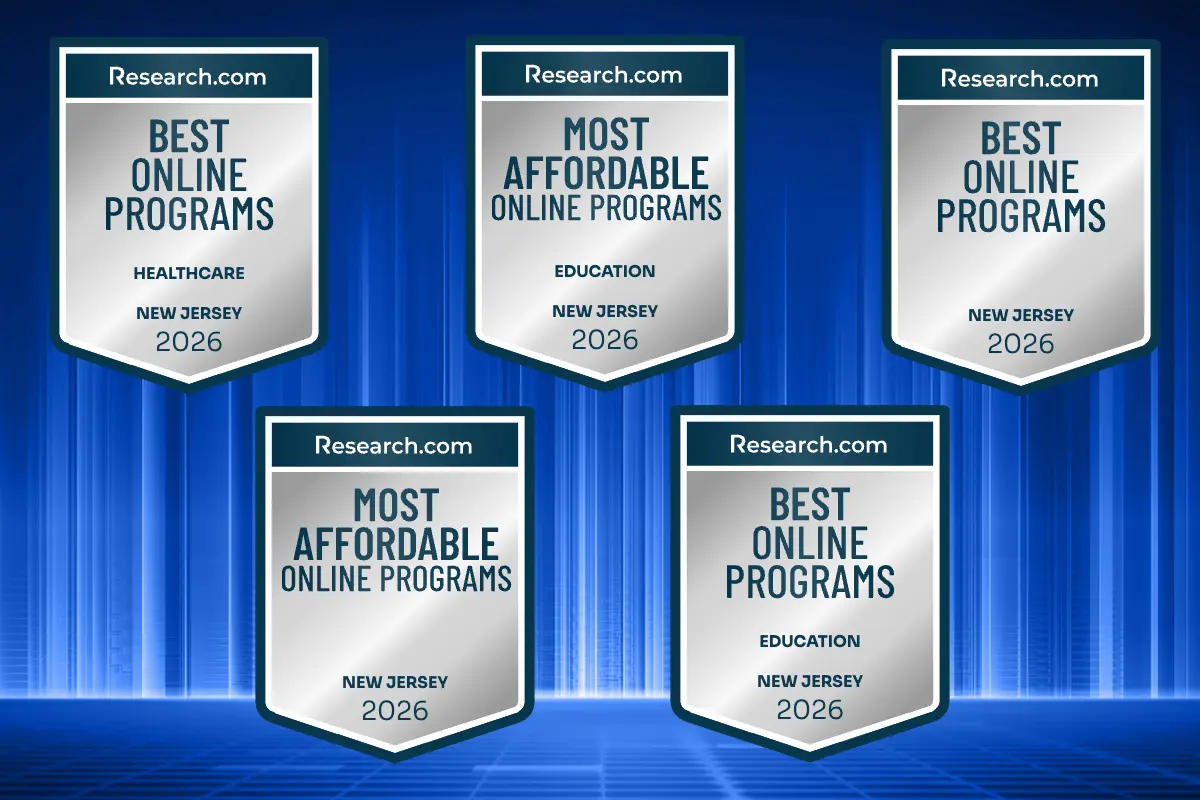Dr. Melanie Clark Mogavero, Associate Professor in the Department of Crime and Justice Studies, released her new book Mental Health, Neurodiversity, and Criminal Justice: A Guide for Students and Practitioners in June 2025. The book examines the intersection between the criminal justice and mental health systems, including their history, development, and processes.

We spoke with Dr. Mogavero about her reasons for writing the book, its intended audience, and why students should consider studying Criminal Justice at Georgian Court.
GCU: What’s your new book about?
Dr. Mogavero: My book examines the overlap between the criminal justice and mental health systems. I focus on populations such as those with autism, intellectual disability, substance use disorders, and major mental health disorders. These individuals need additional care and treatment in the system.
The book is divided into three parts: diagnostic criteria and prevalence of conditions, how they play out across police, courts, and corrections, and the history and development of the criminal justice, juvenile justice, and mental health systems. I include real case examples to show how conditions can increase the risk of involvement in the system. I also interviewed several justice system practitioners to provide insight into best practices when handling these populations.
GCU: Who’s the intended audience?
Dr. Mogavero: I wrote it for criminal justice practitioners, including police, attorneys, judges, and correctional and probation officers, as well as undergraduate and graduate students. Most books on this topic are geared toward mental health professionals, so I wanted something practical for those in the justice system.
GCU: What impact do you hope your book will have on readers, and how do you hope it will be utilized?
Dr. Mogavero: I hope it becomes a guide that helps practitioners be more effective and informed. Police officers, for example, are often first responders to mental health crises, and there are many myths about people with mental illness or disabilities. I want to combat those misconceptions with facts.
GCU: What key points do you want readers to take away from your book?
Dr. Mogavero: I want readers to better understand how these conditions affect involvement in the criminal justice system. For example, autistic individuals and those with intellectual disability are at higher risk of victimization and injustices such as wrongful convictions. The justice system has long handled juveniles and those with mental illness differently, and I want readers to understand why.
GCU: How did the idea for this book come about, and why did you want to write it?
Dr. Mogavero: I’ve always been interested in the overlap between psychology and criminal justice. When I began teaching at GCU in 2015, I saw the need for more education on these issues and created related courses. About five years ago, I developed a course on this topic, but no textbook existed, so I pieced together resources. Eventually, I realized it was time to write one myself, and when a publisher reached out in 2023, I submitted a proposal.
GCU: How has your criminal justice experience, and particular research and interest areas, helped you write your book?
Dr. Mogavero: My research focuses on people with mental illness and disabilities, a group I sometimes call the “forgotten minority.” I wanted to highlight the discrimination they face and show real case examples, both well-known and anonymous. My passion for these issues really drove me to write the book.
GCU: What’s special about GCU’s Department of Crime and Justice Studies?
Dr. Mogavero: Our program emphasizes social justice issues, which are central to the Sisters of Mercy core values. Alongside traditional courses, we require classes that focus on mental health, disabilities, race, gender, and other areas of inequality in the justice system. Students today want reform, and we give them the tools to think critically about it.
GCU: Why should prospective students consider a Criminal Justice major or minor?
Dr. Mogavero: Criminal Justice is broad and overlaps with many fields, from psychology to social work. Most people will encounter the justice system in some way, so understanding how it works (and how people can be diverted from it) is valuable for many careers.







